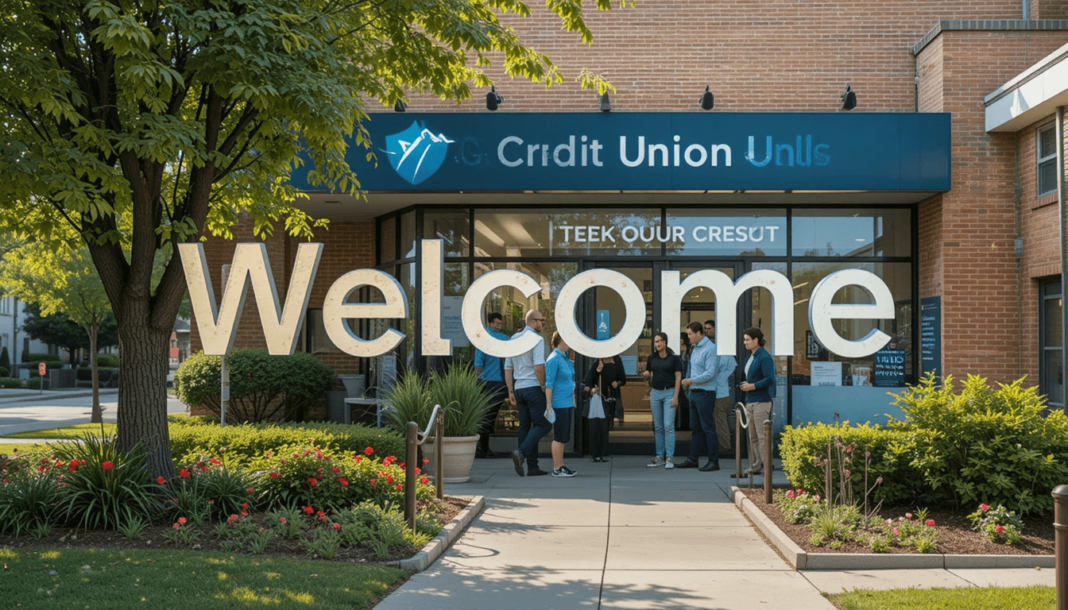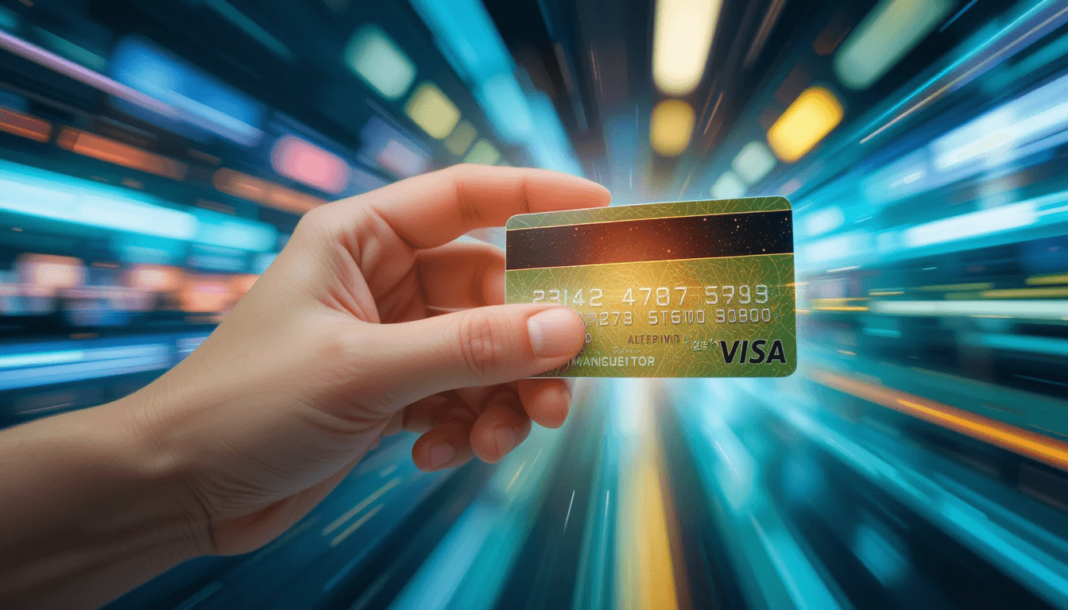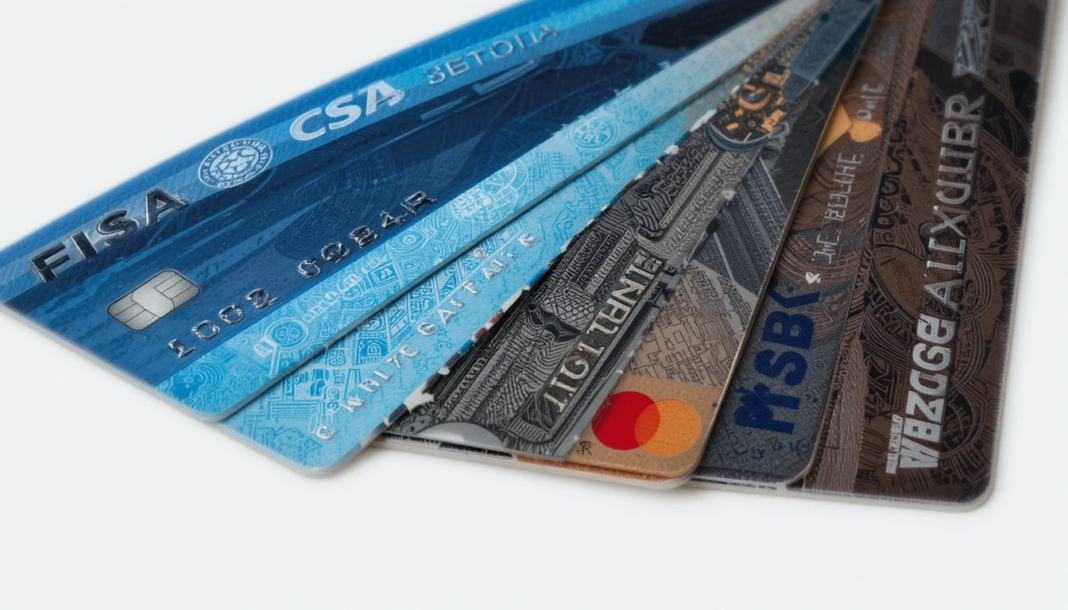Okay, so picture this: You’ve got your money. You need a place to keep it, to grow it (hopefully!), to borrow from. For most of us, our first thought is a big bank. Chase, Bank of America, Wells Fargo – you know, the Goliaths of the financial world. They’re everywhere, they’re convenient, they have fancy apps. And sometimes, they also have fees that pop up like whack-a-moles, interest rates that make you laugh (or cry), and customer service that feels like you’re talking to a brick wall.
My friend, Sarah, was furious one time. She was trying to get a small personal loan from her big bank, just enough to cover an unexpected car repair. She’d been with them for like, ten years! They told her no, then offered her a credit card with an insane interest rate. She looked at me, totally lost, and said, “Dude, I seriously thought being a loyal customer meant something!” It broke her heart. And that’s when she started looking into alternatives. That’s when we started talking about credit unions.
So, what even is a credit union? And why are they different from a bank? This is important because it’s the fundamental difference that makes them either a perfect fit for you or not.
- Banks: Are for-profit organizations. Their main goal is to make money for their shareholders. So, every decision, from interest rates to fees, ultimately comes back to maximizing profits.
- Credit Unions: Are not-for-profit financial cooperatives. They are owned by their members. That’s you, if you join! Instead of shareholders, their profits (or surplus, as they call it) are returned to members in the form of lower loan rates, higher savings rates, and fewer fees. It’s like a secret club where everyone benefits. Seriously.
It’s this “member-owned” thing that’s the real game-changer. It means they’re often more focused on you than on their bottom line. So, when someone asks, Is a Credit Service Union Right for You?, the answer often comes down to what you value most in your financial relationships.
Why People Are Ditching Big Banks: The “Pros” of a Credit Union

Let’s be real: people don’t just switch banks on a whim. It’s like breaking up with a long-term partner; it takes effort! But the reasons people make the leap to a credit union are often pretty compelling.
1. Better Rates & Fewer Fees: The Money-Saving Superpowers
- Higher Savings Rates: Because they’re not trying to maximize profits for shareholders, credit unions often pay slightly higher interest rates on savings accounts, checking accounts, and CDs (Certificates of Deposit). It’s not going to make you a millionaire overnight, but every little bit helps, right?
- Lower Loan Rates: Mortgages, auto loans, personal loans, credit cards – credit unions are often famous for offering better interest rates on these. Why? Because they’re passing the savings (from not having shareholders) back to you, the member.
- Fewer (and Lower) Fees: Think about those annoying monthly maintenance fees, overdraft fees, ATM fees. Credit unions are generally known for having fewer of them, and when they do exist, they’re often lower. Some even refund out-of-network ATM fees!
- My Take: This is where the rubber meets the road for most people. Getting a better interest rate on your car loan can literally save you hundreds or thousands of dollars over the life of the loan. My cousin, Mark, got his mortgage through a credit union and still brags about the interest rate. “Dude, I seriously thought I was going to pay way more for a mortgage until I talked to them!” he said. It’s like finding a perpetual discount code.
2. Personalized Customer Service: The “You’re Not Just a Number” Vibe
- Community Focus: Credit unions are often community-based or employer-based. This means they know their members better. When you call, you might talk to the same person. When you walk in, they might know your name. It’s a completely different experience than navigating a giant call center.
- Relationship Banking: Because they’re member-owned, their success depends on your success and satisfaction. They’re invested in helping you, not just selling you products. This can mean more flexible loan terms, or a willingness to work with you if you hit a rough patch.
- My Take: This was a huge one for me. I once had a huge issue with a fraudulent charge on my debit card. With my big bank, it was a 45-minute phone call, transferred three times, and then a form. With my credit union (after I switched, thank goodness!), it was a 10-minute chat with someone who remembered my name from the last time I called. It felt like I had a human being on my side, not a nameless drone. It’s like the difference between ordering from a faceless corporation online and buying from a local small business where the owner knows your order.
3. Member-Owned and Democratic: Your Voice Actually Matters
- Voting Rights: As a member, you actually have a say! You can vote for the board of directors. Try doing that at your big national bank. You can’t.
- Ethical Investing (Often): Because they’re member-focused, credit unions often invest back into the local community through financial literacy programs, local sponsorships, and responsible lending. It’s kinda cool to know your money is doing good.
- My Take: This is less about immediate perks and more about the feels. It feels good to be part of something that’s genuinely trying to help people, not just make money. It’s like being part of a co-op instead of just shopping at Walmart.
The “Cons” (Or, Things to Think About)
Okay, so credit unions aren’t perfect. Like anything, they have their quirks. Knowing these can help you decide if Is a Credit Service Union Right for You?
1. Membership Eligibility: Not Everyone Can Join
- The Big Hurdle: This is probably the biggest “con.” You can’t just join any credit union. You have to meet specific eligibility requirements. This could be:
- Living, working, or worshipping in a certain geographic area.
- Being employed by a specific company or organization.
- Being related to a current member.
- Sometimes, making a small, one-time donation to an affiliated charity.
- My Take: This is where the magic happens, but also where it gets a little messy. You might find the perfect credit union, only to realize you don’t fit the criteria. It’s like finding the perfect pair of shoes, but they’re only available in one size. Frustrating! But don’t give up! There are usually many credit unions out there, and one will likely fit your criteria.
2. Fewer Branches & ATMs: The Convenience Factor
- Limited Physical Presence: Since they’re often local, credit unions don’t have thousands of branches across the country like the big banks do. If you travel a lot, or move frequently, this could be a pain.
- ATM Networks: While many credit unions participate in shared ATM networks (like CO-OP Network), meaning you can use thousands of credit union ATMs fee-free, it’s still not as ubiquitous as a big bank’s network.
- My Take: This was the biggest hurdle for me initially. I was so used to seeing my bank’s ATMs everywhere. I looked at myself, totally lost, and said, “Dude, I seriously thought I’d be stuck without cash all the time!” But honestly, with mobile banking, direct deposit, and online bill pay, I rarely need a physical branch or ATM anymore. And the shared networks really help. It’s like trading a huge, crowded superstore for a smaller, specialized shop – you get better service, but maybe not quite as many locations.
3. Tech & Digital Offerings: Catching Up?
- Sometimes Less Cutting-Edge: While many credit unions have fantastic apps and online banking, some smaller ones might be a bit behind the curve compared to the multi-billion dollar tech budgets of the giant banks.
- My Take: This is definitely improving. A few years ago, this was a bigger deal. Now, most credit unions have decent mobile apps, online bill pay, and mobile check deposit. It’s rare to find one that’s truly stuck in the Stone Age. But it’s worth checking out their app reviews before you commit.
Are Credit Unions Safe? (Yes, Super Safe!)
Just like banks are FDIC insured, credit unions are insured by the National Credit Union Administration (NCUA). This means your deposits are insured up to $250,000 per depositor, per institution. So, your money is just as safe at a credit union as it is at a big bank. Don’t let anyone tell you otherwise!

My Journey: From Big Bank Breakup to Credit Union Convert
I’ve been a credit union member for years now, and honestly, I don’t think I’ll ever go back to a big bank for my primary accounts. The fees are lower, the rates are better, and when I call customer service, I usually get a human being who genuinely sounds like they want to help.
One time, I was trying to get a new debit card because mine was expiring, and I needed it expedited for a trip. With my old big bank, it would have been a whole song and dance. With my credit union, I called, the representative said, “Oh, sure, we can get that out to you. You’re flying on Thursday, right? We’ll make sure it gets there by Wednesday.” They actually remembered my upcoming trip details from a previous conversation! I should probably be embarrassed by how impressed I was, but honestly? That’s one of my favorite memories of how a credit union actually made my life easier. It’s the little things, you know?
Conclusion: So, Is a Credit Service Union Right for You?
Ultimately, the decision to go with a credit union (or a traditional bank) comes down to your personal preferences and financial habits.
- You’re probably a good fit for a credit union if:
- You value personalized customer service and a community feel.
- You’re looking for better interest rates on savings and loans.
- You want fewer fees and more transparency.
- You don’t mind potentially fewer physical branches (relying on online banking).
- You meet the membership eligibility requirements! (Crucial, remember?)
- You might be better off with a big bank if:
- You travel constantly and need access to thousands of branches/ATMs everywhere.
- You prefer a highly advanced, cutting-edge mobile app above all else.
- You’re looking for super complex financial products or investment services that some smaller credit unions might not offer.
So, go forth, explore your options, and see if there’s a credit union out there that truly feels like it’s on your side. Check their websites, look for their membership eligibility, and compare their rates. Your future self, with a little more money in your pocket and a lot less financial stress, will thank you for it. Cheers to finding your perfect financial home!





